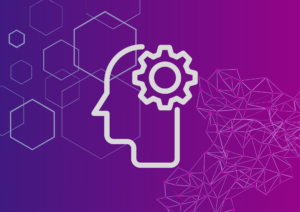This week I will join governments, the United Nations system, the private sector, civil society, grass-roots organizations, academia, and youth in New York for the United Nations General Assembly. Many events on data and digital development are on this year’s agenda and I will be sharing why it’s time for a transformative shift in policy efforts to embrace a holistic vision of data governance.
In this blog, I share some thoughts on the development of the United Nations, Global Digital Compact and why data governance in particular needs to be addressed to realize such multistakeholder ambition and pave the way for an inclusive and sustainable digital future.
Background
In May 2023, ahead of the Summit of the Future in 2024, the United Nations (UN) released “Our Common Agenda”, an agenda of action to accelerate the implementation of the Sustainable Development Goals (SDGs). “Our Common Agenda” outlined the foundations of a Global Digital Compact (GDC), which would set out the “principles, objectives and actions for advancing an open, free, secure and human-centered digital future”, anchored in human rights and enabling the SDGs.
The process of the GDC included a series of online consultations with stakeholders that ran from June 2022 through April 2023. Based on these consultations, the Secretary-General released Policy Brief 5 proposing the development of the Global Digital Compact and outlining the areas where multistakeholder cooperation is urgent to shape “a shared vision on digital cooperation”.
The Datasphere Initiative provided spoken and written contributions to the consultations and worked with related partners to emphasize why data needs to be responsibly unlocked for all. Below are some of the recommendations we shared and continue to call for action on:
1. We need to talk about data: personal and non-personal
Data is transversal to all economic and social sectors, underpinning practically all activities. While the centrality of data in decision-making processes and for value creation has been increasingly recognized, discussions about new technologies and the digital future are often held without any consideration about data. The GDC discussions should necessarily start with data, which is the base for technological innovations, and a valuable asset in and of itself.
In fact, we not only need to talk about data but specifically about the value of both personal and non-personal data. Many ongoing data governance efforts only tackle personal data issues and often overlook the enormous potential that non-personal data brings to society.
Overall, talking about data and how to responsibly unlock its value for all will not only impact if we manage to build more equitable and inclusive digital societies but also how we do it.
2. Incautious reliance on analogies about data can lead to misguided policy choices
Analogies are useful to approach unfamiliar situations, but taking them too literally can lead to misguided policy choices. Data is multidimensional. The world of data is growing and diverse, prone to overlapping modes of classification and formed by numerous actors connected by complex relations and value chains.
Data is different from goods and services, as a non-rivalrous resource that can be replicated and combined in numerous value chains without being depleted. The location of storage and processing is not all that matters. Who collects, processes, or accesses data – and for what purpose(s) – is of high relevance.
The challenge for the GDC is hence not to be seduced by analogies of data or digital technologies as the new “water” or “oil”, as oversimplifying these issues could lead to misguided policy choices.
3. We need a holistic approach to data governance
With the rising awareness about the societal harms and challenges of governing data and digital technologies, all actors are confronted with the difficulty of setting the right balance between two opposing risks: on the one hand, excessively limiting the sharing of data reduces the many benefits that society as a whole – and individual actors – can derive from it; on the other hand, insufficient addressing legitimate concerns, and hence eroding trust, security, and economic and social value.
The GDC should note this tension and adopt a holistic and systemic approach that translates back into governance models that can effectively target these issues and unlock the value of data for all. One step in that direction is to bring stakeholders together and break silos to work towards collective data governance frameworks that foster data protection and innovation. This will help all stakeholders to intentionally contemplate the digital societies they collectively want to build and shape.
4. Data infrastructure and data as infrastructure
In the 21st century, data is foundational for the future of infrastructure. Data is a critical component and needs to be understood as a key part of modern-day infrastructure, but it presents new challenges to existing institutions concerned with the safe and effective management of infrastructure.
Having a strong understanding of “data as infrastructure” and the need to develop holistic “data infrastructure” will only become more vital as our populations grow and our economies and societies become ever more reliant on getting value from data to meet people’s needs.
5. We need to talk about data governance for AI and other technologies and find new dynamics to collaborate
By diving into the regulation of specific technologies, it is fundamental to dive deeper into the data governance discussion as well. Governments and the private sector around the world are struggling to deal with data’s multidimensional nature, while trying to understand, audit, and regulate technology in various sectors, such as machine learning, Artificial Intelligence (AI), and Extended Reality (XR).
Talking about data governance cannot be a separate effort from the GDC, because attempting to engineer solutions, depending on siloed frameworks and uncoordinated actions, is bound to be futile in the face of the interdependencies of contemporary global society.
To make genuine progress, a new level of dynamic collaboration is needed. Sandboxes could be an interesting alternative to test technologies and data practices against regulatory frameworks, or experiment with new uses, capabilities, and means of governing data. By involving all types of stakeholders, sandboxes’ outputs resonate across a comprehensive audience and reflect a broad consensus.
6. Beyond data commons: the power of collective approaches
New normative, regulatory, and policy trends need to place more emphasis on bottom-up approaches and the importance of collective rights and impacts. While the impacts of certain data uses might not be easily detected at an individual level, they may become evident at the collective level. This collective level also offers the opportunity to unlock the value of data for communities and allow them to benefit from the data about their groups.
The GDC should venture into collective identities and societal dynamics as the basis for data analysis and governance efforts. It should also place greater relevance in consulting communities – as different principles to govern data are emerging from community concerns – and thinking about novel approaches to data governance that may center collectives rather than individuals.
7. A new arrangement: more nuance and common objectives
Data governance efforts have developed in a fragmented and siloed manner, and an increasing number of sector-specific norms contribute to that. Overcoming this fragmentation and mapping existing platforms, overlaps and gaps is necessary to build shared frameworks that ensure data interoperability and sharing. Multistakeholder engagement (that is: going beyond an agreement only between Member States), especially among practitioners and innovators, along with international cooperation, are key to creating a common language around data governance, protecting human rights, and promoting global competitiveness and data usage for innovation. Multilateral dialogues around the GDC should thus seek to find convergence between actors’ priorities and values and develop models that work for different contexts and needs.
Next Steps
Overall, the mission of the Datasphere Initiative is to responsibly unlock the value of data for all. Data is fundamental to unlocking the potential of technologies such as AI or Extended Reality spaces, which is why a Global Digital Compact must first start with a conversation about data.
Only by ensuring that the socio-economic benefits of both personal and non-personal data can be responsibly unlocked for all – in a manner that is rights and culturally respecting – will we be able to build a more equitable, inclusive, and sustainable digital future.
The Datasphere Initiative, together with its partners, will keep on contributing to this conversation around the GDC and pushing for a holistic approach to data governance in different policy fora.
If you would like to collaborate and learn more about the Datasphere Initiative’s approach and policy advocacy efforts, reach out to [email protected].





